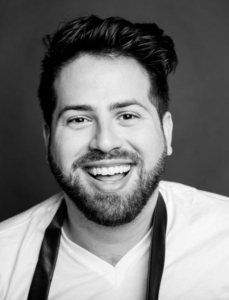Men Struggle, Too: My Journey with Binge Eating Disorder
Waking up at 2am thinking about food. Surfing the internet at work, looking up new recipes when you have a deadline coming up. Planning and stopping at fast food restaurants between every meal.
This isn’t a buildup to a funny meme about loving food. This was my life until I was diagnosed with binge eating disorder (BED) at 28 years old.
But Guys Don’t Get Eating Disorders, Right?
I am a man, and this diagnosis shook me to my core but was also a huge relief. I had friends who actually laughed it off when I mentioned it, thinking I couldn’t be serious. An eating disorder, really? I was just a big guy who loved food. Nothing wrong with that. Right?
The National Eating Disorders Association describes BED as a “severe, life-threatening and treatable eating disorder characterized by recurrent episodes of eating large quantities of food.” But this disorder isn’t just about the eating—it’s the obsession with food itself. Thinking about it, seeking it out, planning entire days around it: food became my life.
But it still took a visit to my therapist to help me realize exactly how much the obsession had taken over my life. I didn’t even realize it was the most common eating disorder in men (and most guys probably don’t, because it often goes unreported and untreated).
My Obsession with Food
I thought my food obsession was totally normal. From a young age, my mom would make excuses for my eating, telling me I was a “growing boy” and there was nothing wrong with loving food. When I got older, though, I began to put food before almost any other commitment in my life. Even while I tried to convince myself that everything was fine, and I was just a “guy who loved food,” I knew my relationship with food needed to change.
How I Got Help For My Binge Eating
I had been in therapy, but shortly after a particularly troubling binge episode, I turned the conversations with my therapist toward food, even though he never once brought up my eating habits with me. I actually did my research and told my doctor I think I may have BED.
I was going into debt, spending hundreds of dollars on regular meals, and all the in-between meals I also binged on. I would rather spend a night in with a few of my favorite foods than go out with others. And I was tired of pretending I wasn’t struggling, of hiding my behavior. So I started on the road to recovery.
If you think you may be suffering from BED, or know someone who might be, here are a few pointers to keep in mind:
- You don’t have to be overweight to be diagnosed with BED (most people who suffer are considered medically to be a “normal” weight).
- You can binge on healthy and unhealthy foods.
- BED thrives in isolation (most people eat in privacy when no one else is around).
- You feel a total lack of control over food, and once you start, it’s very hard to stop.
- You eat when you’re not physically hungry and don’t stop even when you’re very full, often eating very fast.
- Binges are typically followed by feelings of extreme guilt and disgust.
If this sounds like you, speak up! Take back control over your health and start with the right resources. The National Eating Disorders Association is a great place to begin. Don’t be ashamed or afraid to talk about it—it’s the first step toward taking back control of your life.
Ryan Sheldon is founder of Confessions of a Binge Eater, a blog he created to share his journey with binge eating disorder (BED). Ryan hopes his story will help others suffering from BED overcome shame and embarrassment, as well as gain back control over food.





